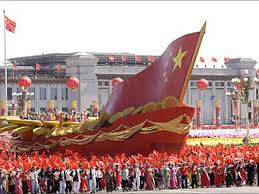Islamabad, July 29: Cash-strapped Pakistan has sought the re-profiling of more than USD 27 billion in debt and liabilities with China and two other friendly nations to secure a bailout package from the IMF, according to a media report on Monday.
The Washington-based International Monetary Fund last month announced that it signed a staff-level agreement with Pakistan to provide a USD 7 billion loan which would be disbursed for 37 months.
However, it attached stringent conditions with it, requiring Pakistan prior action before the fund’s board accords final approval for the loan.
Finance Minister Muhammad Aurangzeb after returning from Beijing told the media on Sunday that talks have been going on with China, Saudi Arabia and the UAE for a re-profiling of USD 27 billion.
Aurangzeb said Pakistan had already asked the friendly bilateral trio of lenders to roll over its more than USD 12 billion annual debt portfolio by three to five years to secure the IMF board’s approval, which is expected next month.
This is on top of Islamabad’s request to Beijing to convert imported coal-based projects to local coal and re-profile more than USD 15 billion in energy sector liabilities to create fiscal space amid difficulties in timely repayments.
Pakistan has a peculiar financial arrangement with these three countries in the shape of commercial loans and SAFE deposits that are rolled over every year and form a major part of the IMF programme in terms of external financing needs.
Pakistan has now requested the maturity period of these loans — USD 5 billion from China, USD 4 billion from Saudi Arabia, and USD 3 billion from the UAE — to be extended to at least three years, offering greater predictability under the IMF programme.
Aurangzeb said the Chinese side acknowledged Pakistan’s foreign exchange difficulties and wanted to help in new business ventures and the re-profiling of energy sector payments besides playing its role in supporting Pakistan’s case at the IMF board as one of the major stakeholders.
He said the process of debt and equity rescheduling had been started and would now go to the working groups with relevant financial institutions and sponsors of Chinese projects for which Pakistan hired local Chinese consultants.
“Between now and the IMF board meeting (on the 37-month bailout package), we have to ensure confirmation of external financing” from friendly bilateral partners, the minister said.
However, he explained that the Chinese energy sector debt reprofiling had nothing to do with the IMF programme as other prior actions had been completed and structural benchmarks were under implementation.
Aurangzeb said he was in contact with the Chinese, Saudi and UAE finance ministers for an extension in debt rollover for three years and they had assured their support that would place Pakistan in a very comfortable position in terms of external financing gap.
“I can assure you we are at a very good place on external financing for the next three years, including year one, year two and year three,” he said.
He said the IMF had worked out a financing needs assessment for three years that also included its own USD 7 billion Extended Fund Facility. After rollovers from friendly countries, the remaining external financing gap would become very manageable, he said.
Responding to a question, the minister said Pakistan was not seeking any incremental financing from friendly countries. “The only incremental thing is an extension in the maturity period for three years instead of yearly rollovers,” he said.
Aurangzeb said that the issue of energy sector repayments was initially taken up by Prime Minister Shehbaz Sharif with Chinese President Xi Jinping during his visit to Beijing and followed it up with formal letters to Prime Minister Li Keqiang.
As part of the process, Aurangzeb, along with Power Minister Awais Leghari, held meetings with Chinese finance and energy ministers and the governor of the Chinese central bank to understand the context of Pakistan’s ability to pay, economic stability and relief in energy tariffs.
He said the two sides discussed conversions of Chinese power projects to local coal and how to take their technical, logistical and financial parameters forward.
Secondly, financial re-profiling would also need to be discussed with banks and project sponsors one by one. “They have recognised this and the process would now move forward on that basis,” Aurangzeb said.
He said the re-profiling of CPEC debt was also discussed with the governor of the Chinese central bank and “we would need to go project by project given the CPEC structure”.
“Very positive discussions have taken place from my perspective,” he said, adding the debt of Chinese independent power producers (IPPs) was manageable as their legal payments were being made, but the issue pertained to return on equity to project sponsors mainly because of foreign exchange which required to be rescheduled to create fiscal space.
The Minister, however, clarified that Pakistan was seeking the re-profiling of payments and not “haircuts” — debt waiver or interest rate cuts. (PTI)
Trending Now
E-Paper


